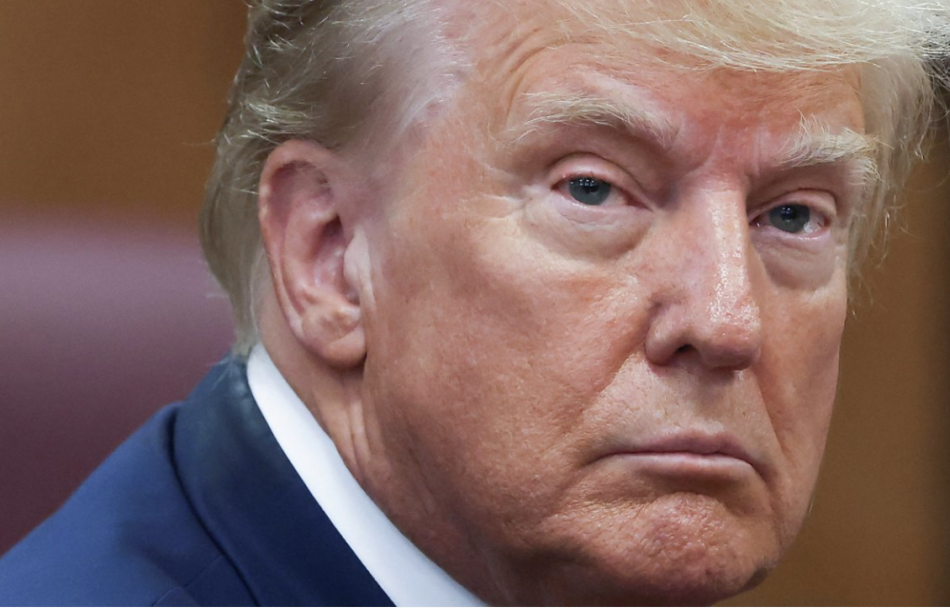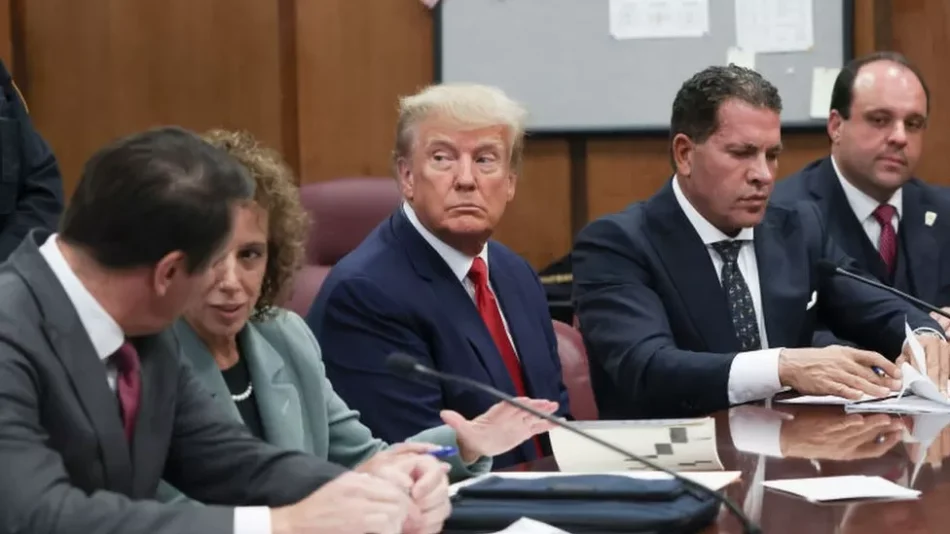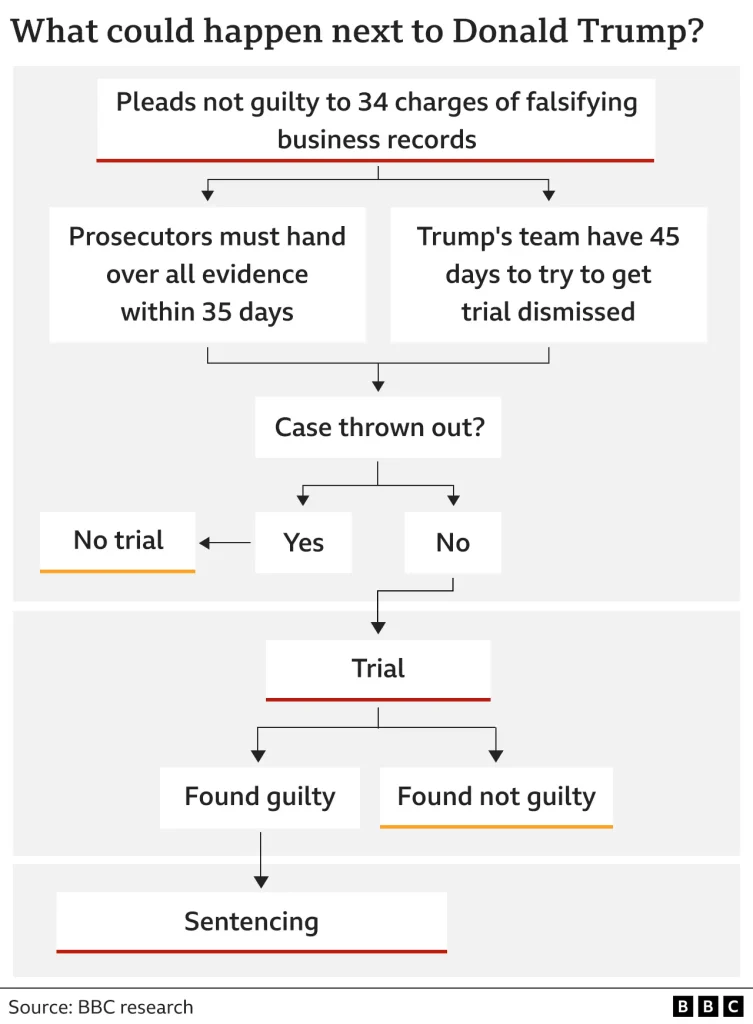Donald Trump has been charged. What happens next?
By Sam Cabral BBC News, Washington

Watch: Three takeaways from Trump’s day in court – Click HERE
Donald Trump has become the first former American president ever to be criminally charged. What comes next for Mr Trump and his defence team?
The 76-year-old pleaded not guilty in New York on Tuesday to 34 counts of falsifying business records.
Although these charges are usually treated as lesser misdemeanours, Mr Trump is accused of committing more serious offences – felonies that may result in more than a year in jail upon conviction.
The charges relate to Mr Trump’s involvement in hush money payments to former porn star Stormy Daniels ahead of the 2016 presidential election.
There’s no doubt that if the case gets to trial, it will be watched worldwide. But the legal process that lies ahead could last months – and will certainly see Mr Trump’s lawyers fighting to get the case dropped.
Prosecutors have to hand over evidence
The office of the Manhattan District Attorney has been investigating the Trump hush money payments for five years.
District Attorney Alvin Bragg alleges that Mr Trump falsified the true nature of the payments because those payments were made in support of a crime – attempting to influence the 2016 presidential election, which is a violation of election law.
With Mr Trump’s arraignment complete, prosecutors are now required to turn over evidence they have gathered during their probe to his legal team, which is a standard process known as discovery.
Under recent legal reforms in New York, discovery must be completed within the next 35 days.
Evidence will include law enforcement interviews with, and witness testimony from, key figures like Ms Daniels and Mr Trump’s former lawyer Michael Cohen.
It will also include minutes from the grand jury convened earlier this year by Mr Bragg to take a closer look at the allegations, as well as records of communication between Mr Trump and others involved in the scheme.


GETTY IMAGES
Trump’s lawyers will try to get case dismissed
Lawyers for Mr Trump have vowed to challenge the charges against him within days, arguing that the case is “ripe for motions”.
Motions are requests for the court to make a decision on a matter relating to a case before a trial begins. If a party makes a motion to dismiss, it is asking the court to dismiss all or part of a case.
Defence lawyers typically have 45 days after arraignment to make their motions, although Judge Juan Merchan could grant them a little more time.
Attorney Joe Tacopina told CNN on Sunday that the Trump legal team would “evaluate all our legal options and pursue every one most vigorously”.
“The team will look at every, every potential issue that we will be able to challenge, and we will challenge,” he said. “And, of course, I very much anticipate a motion to dismiss coming because there’s no law that fits this.”
In addition to a motion to dismiss, the Trump team has floated the possibility of a motion to transfer venue – moving the trial from Manhattan to nearby Staten Island.
Mr Trump wrote on social media that Manhattan “with some areas that voted 1% Republican” is a “very unfair” place for him to face a trial. But motions to transfer venue are rarely granted.
The former president’s lawyers may also seek to dismiss Judge Merchan, whom Mr Trump recently said “hates” him and who presided over the tax-fraud trial that led to the conviction of the Trump Organization’s chief financial officer.
Legal analysts believe that Mr Trump might seek to slow down the legal process.
“It is an understatement to say that [Trump] has a litigious style,” Joshua Ritter, a former Los Angeles County prosecutor, told USA Today.
“You’re going to see challenges to everything, every step of the way.”
Trial of the century?
After his various legal challenges play out, the People of New York v. Donald Trump may become the trial of the century.
Defendants in New York have a so-called “right to a speedy trial”, which means that prosecutors must be ready to try the case within six months. But it is impossible to know how long it will take to address all the motions filed by Mr Trump’s lawyers.
It also remains unclear what arguments prosecutors will use to prove that a felony has occurred.
One avenue centres on whether Mr Trump falsified business records as part for a plan to deceive state tax authorities.
Another may focus on a possible breach of election laws, even though legal experts remain divided on whether election law can be prosecuted in state courts.
In the meantime, Mr Trump could face criminal charges in at least two other cases, including a special counsel probe into his efforts to overturn the 2020 election and his handling of classified information after leaving office.
But no laws exist to prevent an indicted American from running for president, and the Republican will likely continue building his third consecutive campaign for the White House.


For more on this story and video go to: BBC





